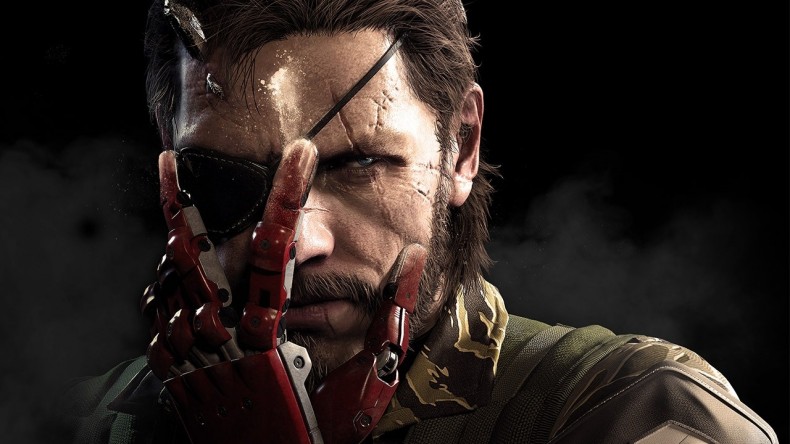I always harboured a not-so-secret love for the PlayStation Portable’s Peace Walker. “It’s the secret best Metal Gear game!” I would regularly exclaim to anyone that would listen, because it really was, extending the series’ stealth gameplay beyond the walls of a facility, beyond the borders of a would-be nuclear superpower. This portable game finally gave you the bigger picture, allowing you to run your very own Mother Base – The precursor to the infamous Outer Heaven idealism. It took the Cold War-era narrative further, but just short of an inevitability that we had known about from the very first 8-bit Metal Gear: The transformation of Naked Snake from a simple soldier, to Big Boss; the leader and instigator of the Outer Heaven Uprising.
I thought it couldn’t get any better than that. Even Hideo Kojima himself suggested that Peace Walker was as good as a “Metal Gear Solid V” as we were ever going to get. Both of us were wrong.
The Phantom Pain is an achievement on so many fronts. Technically, it’s one of the smoothest-running games on current and previous-gen systems. While the film-length cutscenes and wordy codec conversations of previous games were massively trimmed down to leave a, relatively, narratively sparse entry in the series, it’s the refinement of Metal Gear’s gameplay as a whole that makes this such an important game of not only this year, but this current generation so far.
While stealth is a path that The Phantom Pain often wants you to walk down, unlike previous games it’s just one of several that can be taken during each mission, with killing enemy soldiers no longer frowned upon, doing so still allowing you to obtain that all important S rank in each mission. There’s a real variety to the gameplay; from extracting a POW in an underground bunker via Fulton balloon through a hole in the ceiling, to destroying comms technology using a water pistol, of all things. An ever-expanding array of researchable weapons, support items and tools ensure that your options for completing a mission are multiple, and in some cases, fantastical, with some equipment that is sheer sci-fi fantasy – how about trading your “primitive” Fulton balloons for a device that transports people and cargo to your base via an actual wormhole?
Meanwhile, the open-world nature of this outing brings something so new to the stealth genre. No longer are you shepherded from cutscene to cutscene via the claustrophobic corridors of an enemy base, as you infiltrate various locales in Africa and Afghanistan via chopper. What you do in these areas is mostly up to you, and you’ll have fun doing it, regardless.
It’s also a game that tries to push the boundaries of what topics a videogame can tackle. The significance and power of spoken language and the plight of child soldiers are just two of the many mature subjects that Kojima Productions have implemented in their tale. While the more salacious aspects of The Phantom Pain seriously threaten the impact and approach of some of these themes, it’s rare that we see a AAA game even attempt to comment on world issues in the way that this one does. Narratively, Phantom Pain also quite nicely bridges the gap between the prequel games and the very first Metal Gear game, and long-time fans might find the final scenes absolutely shocking, in all the right ways.
Going back to the gameplay itself, a real highlight is the return of Mother Base, my favourite feature from Peace Walker. Here, you are in charge of building up your military presence by capturing new soldiers to your cause, putting them on the battlefield in exchange for money, which can then be used to develop your base and more importantly, research new and exciting equipment. There’s an incredible amount of weapons and items available to research, almost too many in fact, and weapons can be customised to improve their functionality, even the chopper that brings you to missions and extracts you can be improved to aid your infiltration and extraction activities.
Everything about the Metal Gear formula has been fine tuned for this potentially final instalment, and it really does feel like a proper send-off for a series that has genuinely changed the medium over the course of almost three decades. While the ongoing saga of Konami versus Kojima Productions was one of the biggest stories of 2015 and will no doubt continue throughout 2016, the excellence of Metal Gear Solid V: The Phantom Pain will be remembered for years to come.
Lee Garbutt
I'm a UK-based writer with a passion for gaming that spans over 2 decades. For years I've been interested in the history of video games and as a result I have quite the collection of console hardware, not to mention a brain bursting with gaming trivia and knowledge. I've been a part of the GodisaGeek family since 2011, writing, talking and doing videos throughout that time.
I also have my own YouTube channel, Pug Hoof Gaming (http://www.youtube.com/pughoofgaming) and you can follow that on Twitter @TheLastMetroid
On Twitter I can be located @TheLastMetroid and I can be emailed at lee[at]godisageek.com. I'd love to hear from you!
A veteran GIAG member, I've been writing, talking and taping for the site since 2011




